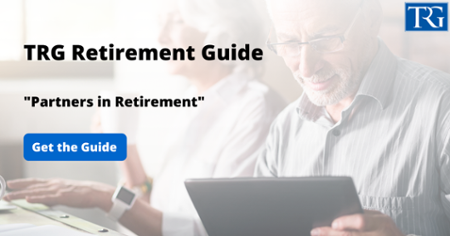September is National Preparedness Month, a Federal Emergency Management Agency (FEMA) initiative to elevate public awareness and encourage disaster preparedness. Most communities are susceptible to natural disasters, such as wildfires, hurricanes, tornadoes, earthquakes, and floods. As an AT&T employee, it is essential that you utilize your assets and knowledge to prepare yourself and your family for an emergency.
Here are some tips that will help you keep your family safe during an emergency and allow you to swiftly evacuate with the essentials.
As an Fortune 500 employee, it is essential to prioritize the collection of irreplaceable or difficult-to-replace documents. These are some examples, but you may require additional documents.
- Information on insurance policies, banking and financial accounts, and account numbers
- Identification such as driver's licenses, passports, birth and marriage certificates, and
Social Security and Medicare cards are acceptable forms of identification.
- Recent tax returns, contracts, wills, and deeds are required.
- A list of your domestic belongings.
As an Fortune 500 employee, you may want to consider storing electronic copies of critical documents on a portable drive or encrypted in the cloud to ensure the integrity of your work materials in the event that you are not at home when a disaster strikes. You may also wish to store the flash drive and/or the original documents in an impregnable safe or safety deposit box.

Create a disaster kit containing essential household items. As an AT&T employee, it is essential to maintain excellent health. Include nonperishable food, bottled water, first-aid supplies, flashlights, an emergency radio, extra batteries, a wrench or pliers to turn off utilities, and a whistle to signal for assistance during an emergency. Face coverings, soap, hand sanitizer, and disinfecting cloths should be included in your emergency kit in light of continuing COVID-19 concerns.
Prepare an inventory of items to bring along. Start with your emergency supplies and important documents. Remember to bring prescription medications, clothing and linens for every member of the household, computer hard drives, laptops, tablets, mobile phones, and chargers, eyeglasses, photographs, and special food or other items for children, disabled or elderly family members, and pets.
Plan where you will go in the event of an evacuation. As an AT&T employee, preparation will increase your chances of surviving at home. Regardless, there is always a possibility that you will need to evacuate. Will you stay with friends or family in another city, or will you check into a hotel or shelter? As an AT&T employee, you may wish to plan a route to your destination as well as a backup route in the event that roads are obstructed or impassable. Determine a secure meeting spot in the event that family members become separated. Choose an out-of-town family member to serve as an alternate point of contact. Check the settings on your mobile devices to ensure that emergency alerts and notifications are activated. Practice packing up and departing the house in less than 10 minutes.
Be sure you have appropriate insurance. The coverage you require depends on the types of natural disasters that are most likely to affect your property and neighborhood. As an AT&T employee, natural disasters such as wildfires, hurricanes, and tornadoes are typically covered by your homeowner's insurance policy. As an AT&T employee, it is nonetheless useful to be aware that damage from floods and earthquakes typically necessitates separate policies. Contact your insurance agent to discuss your coverage options.
FEMA provides additional information at ready.gov/be-informed and ready.gov/plan.
According to a study conducted by the Federal Reserve in 2020, nearly 40% of adults in the United States did not have enough savings to cover an unexpected $400 expense. This highlights the importance of emergency preparedness for individuals nearing retirement age, such as Fortune 500 workers. As you plan for the future, it is crucial to establish an emergency fund that can sustain you and your family during unforeseen circumstances. By setting aside a portion of your income regularly, you can build a financial safety net to mitigate the impact of emergencies, ensuring that you have the resources to protect your well-being and maintain financial stability. Source: Federal Reserve, "Report on the Economic Well-Being of U.S. Households in 2020," May 2021.
Preparing for future emergencies is like investing in insurance coverage for your home. Just as you protect your property from potential risks, such as fire or theft, by purchasing homeowners' insurance, taking proactive steps to prepare for emergencies safeguards your well-being and financial security. Just as insurance provides peace of mind and a safety net when the unexpected occurs, emergency preparedness ensures that you and your loved ones have the necessary resources and plans in place to navigate unforeseen events successfully. Just as you carefully choose the coverage options that align with your specific needs, you can assess potential risks and tailor your emergency preparedness efforts accordingly. By investing time and effort now to prepare for future emergencies, you create a resilient foundation that shields you from potential harm and helps you weather any storm that may come your way.
